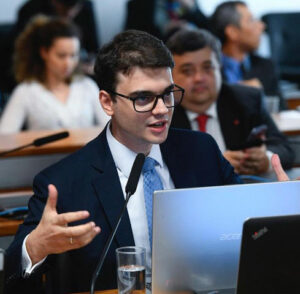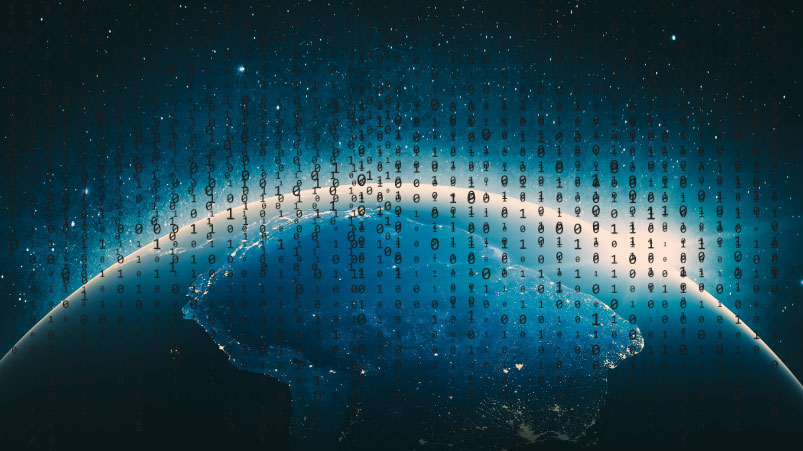Introduction
Brazil is a country of great relevance in the international tech market, primarily due to its strong consumption of new digital services; as an example, it is the second country with the highest number of WhatsApp users worldwide with over 100 million users. Initiatives to regulate technologies in the country impact not only the business model of many international companies seeking Brazil as an attractive consumer market but also on the regulatory models of other nations in the global south.
An example of the importance of national regulations focusing on new technologies was the aggressive stance adopted by Google during discussions on a platform regulation proposal in 2023. Google went so far as to include a warning on its homepage about how the proposal could allegedly limit online freedom of expression, drawing international criticism for its interference in the Brazilian legislative process.
Given the context of the effects Brazilian regulations can have on the international technology market and even influence other countries, this post maps the main legislative discussions for the year 2024.
Data Protection
The primary Brazilian technology legislation was the Marco Civil da Internet (Law No. 12.965 of 2014), a response to national concerns arising from Edward Snowden’s revelations that then-President Dilma Rousseff was under surveillance by the United States National Security Agency. The legislation was recognized as the world’s first Internet Bill of Rights [3], establishing users’ rights for privacy protection, freedom of expression, and Internet access, as well as obligations for service providers.
Subsequently, the first Brazilian data protection legislation was approved in 2018 and came into effect in 2020, known as the Lei Geral de Proteção de Dados (Law No. 13.709 of 2018). The regulatory model is similar to the one adopted by the European Union in the General Data Protection Regulation, which outlines principles that limit the use and collection of personal data, rights for data subjects, and accountability obligations for data controllers and processors. The first national data protection authority, created by the law, was formally structured in August 2020 by the Executive and has, to date, sanctioned only a tiny company and a public agency. The company sold databases collected through web scrapping techniques of public data for 2020 election campaigns.
More recently, in December 2023, the Executive established the Brazilian Cybersecurity Policy with the purpose of structuring a public policy with public and private entities in order to create a safer cyber environment, avoiding financial losses to the national market. In 2024, the National Cybersecurity Council will be structured, which should start working on a National Strategy with incentives and guidelines for digital security for public authorities and the private market.
Digital Platforms
Over the last four years, there has been growing concern about the responsibility of digital service platforms (social networks, instant messaging services, marketplaces, etc.), the spread of fake news leading to the erosion of democracy and national institutions, and, more recently, artificial intelligence, leading to legislative projects in Congress.
In 2020, the Federal Senate proposed Bill No. 2630 for the regulation of platforms offering digital services and their responsibilities. The version approved by the Senate in July 2020 was sent to the Chamber of Deputies, which formed a working group focused on improving the received text from the Senate. The revision prepared by the working group was presented in March 2022 and it made radical changes, particularly addressing concerns about the presidential elections scheduled for October 2022 and the role of platforms in the spread of fake news.
This new text has many similarities to the Digital Services Act, such as the imposition of transparency reporting obligations found in Article 15 of the European Regulation. An English study on the content of Bill No. 2630 was published by Tales Tomaz. There are political pressures, mainly from the Executive, for the proposal to be voted on in early 2024, aiming to establish rules for the municipal elections scheduled for October of that year.
Artificial Intelligence
Another proposal for Brazilian legislation in the digital context is Bill No. 2338 of 2023 for the regulation of artificial intelligence. Initially, the regulation of artificial intelligence was initiated by the Chamber of Deputies with Bill No. 21 of 2020, outlining principles without specifying obligations for developers or companies employing these technologies. After approval, the Federal Senate created a working group of experts in 2022 to review the text.
This group of experts included prominent figures in Brazilian law studying relationships with new technologies: Professor Danilo Doneda (in memoriam), Professor Laura Schertel Mendes, Professor Fabrício da Mota Alves, and Professor Miriam Wimmer, among others.
The work resulted in a proposal for a new regulatory model for artificial intelligence, closer to the European Union’s AI Act, with risk-based obligations presented by different types of artificial intelligence. An important difference from the European model is the provision of rights for Brazilian citizens, such as the right to information regarding the use of artificial intelligence systems in decision-making, the types of personal data used, companies involved in the context of the decision, and the right to access details of automated decisions with the possibility of requesting human intervention. This new text was proposed by the Federal Senate as Bill No. 2338 of 2023 and may still undergo changes.
Neurorights
There is also a discussion about the regulation of neurotechnologies, initiated by Chile with the constitutionalization of a new category of fundamental rights called “neurorights” in 2021. It addresses the limits of current fundamental rights systems in the face of the operational model of technologies that interact directly with brain activity.
In Brazil, inspired by Chile’s constitutional initiative, Constitutional Amendment Bill No. 29 of 2023 was presented in the Federal Senate to add a fundamental right to “ensure mental integrity and algorithmic transparency” through scientific and technological development. There have been no debates on the content of this proposal yet.
Finally, it is worth mentioning that there is a possible revision of Brazil’s Civil Code after the creation of a group of legal specialists responsible for drafting a proposal by the Federal Senate. In this group, there is a committee responsible for studying rights in the context of the digital society, where topics such as the right to deindexing, digital inheritance, and others are being considered.
This scenario demonstrates that Brazil is at the forefront of discussions about the relationship between law and technology. It is not only influenced by the European Union but also seeks to contribute to the vision of a developing country in the global south and may impact other similar nations or even the business model of major technology companies worldwide.
 Alisson Possa is a lawyer with a Master’s in Brazilian Constitutional Law (IDP) & professor at IBMEC.
Alisson Possa is a lawyer with a Master’s in Brazilian Constitutional Law (IDP) & professor at IBMEC.

